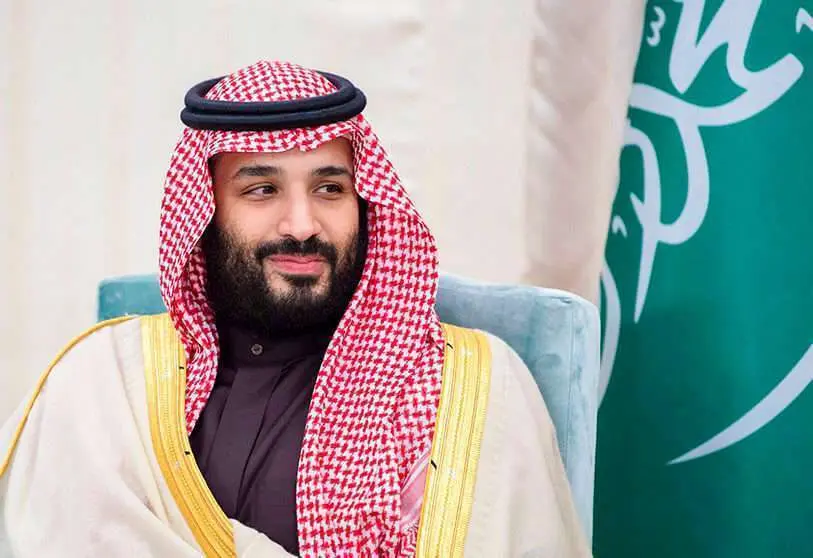Bin Salman will abolish flogging

Saudi Arabia's young Crown Prince, Mohamed bin Salman, has got us used to press releases that are always unique and surprising. Much has been said about the 30-year-old monarch since he took power in June 2017, and it must be said that it has often been for the worse. The shadow of Khashoggi, the Saudi journalist murdered at the Saudi Arabian Embassy in Ankara, still looms over the kingdom and has spread to its highest dignitaries and, above all, tarnished the image of a young reformist and modern king. But this time it is different. Important actions have been taken to restore the kingdom's coat of arms. Today, Mohammed bin Salman, as a reformer, is asserting himself as such and introducing important changes to the Saudi penal code, such as abolishing flogging and the death penalty for minors. This important reform is long overdue and has been welcomed by international bodies.
It should be recalled that the practice of flogging was applicable in the cases of Hudud (the limits) which fall under Sharia law according to the conception of the Saudi kingdom. It was used to punish all sexual relations outside marriage, for the simple consumption of alcohol and, of course, for any suspicion of apostasy. The unbearable images of Raëf Badaoui, condemned to a thousand lashes for insulting religion, will continue to haunt us for a long time. In the new code, the date of application as yet unknown, prison sentences and fines will replace these barbaric practices.
These are bold reforms in the land of Wahhabism. Saudi Arabia advocates a rigid Sunni Islam of Hanbali obedience. This kind of Islam advocates a literary reading of the Koran as opposed to any saving spiritual reading. Clearly, it is the word that prevails over the spirit, hence its rigidity. Whether we like it or not, what is happening in Saudi Arabia concerns all Muslim countries. The image of Islam is linked to it. The monarchy, guardian of the holy places, remains a model for Sunni Muslims and it is by this criterion that we must measure this progress too.
The judicial amendments are part of the social reforms initiated by Mohamed bin Salman to consolidate his power and modernise a country that seems out of date. Since 2018, women who were subject to travel under male guardianship can travel abroad without prior approval from the male referent, which has long been the case. A decision that did not please everyone in this country known for its conservatism. But Bin Salman reigns as an absolute monarch and claims that anyone aged 21 or over, regardless of gender, is entitled to a Saudi passport and can travel freely. Today in Riyadh we can even meet Saudi women without wearing a veil. Since then, since they left their abaya and although they are severely criticised and pointed out, they continue their emancipation, exercising their freedom and no matter what price they have to pay. Saudi women have also been allowed to drive, which was a sacrilege a few years ago.
In perpetual war and emulation with the Gulf monarchies, Saudi Arabia wants to be seen in a different light, namely to enter the 21st century. At a time when Abu Dhabi opened the Louvre and Qatar has, for several years now, positioned itself as a proven supporter of Arab cinemas through the mastodon, Doha Film Institute, Saudi Arabia has been dragging a reputation of Bedouin monarchy out of time and out of our civilisation.
To compensate for this reputation, Mohamed bin Salman has launched major entertainment projects and even wants to reposition his country as a tourist destination. The World Judaica Festival is one of those instruments of change. The 66-day festival has even invited the sensual Nicky Minaj to perform in the Holy Land and the lightly dressed Lebanese star, Nancy Ajram. The American rapper finally declined the invitation after being sidelined by her fans, NGOs and other human rights activists. "I think it's important for me to clearly show my support for women's rights, the LGBTQ community and freedom of expression," she finally announced before withdrawing. A film festival has also been set up in the Shariah country that hopes to rival festivals in Cairo and other red carpets in the Middle East. And although the Red Sea Festival was cancelled this year due to the pandemic, the desire to open up to the seventh art remains relevant.
The country that Mohamed bin Salman inherited is not in its first attempt at modernisation, though that might make us smile. Reforms had already been undertaken long ago by King Faisal. This, by the way, cost him his life. The monarch, son of Abdelaziz ibn Saud, who came to power in 1964, was an excellent strategist, reformer and visionary. Faisal had fought against the clergy of his time to educate women and faced fierce opposition from conservatives. He was a monarch ahead of his time. His desire to modernise the country was honest, but it was in the early 1970s. At that time there was no Internet and the Saudi Arabian people were not even prepared to accept television. Even the king had to fight to authorise the country's first television station! as this communiqué had produced memorable riots in order to prevent it.
If King Faisal has been a true equilibrist between reformist and conservative currents, Mohamed bin Salman seems to make his decisions with all diligence and without being accountable to anyone but himself, and this applies to both his good and bad decisions. Let us not forget that, according to Human Rights Watch reports, 184 people were executed in Saudi Arabia in 2019 and many prisoners of conscience are still languishing in Saudi prisons.

